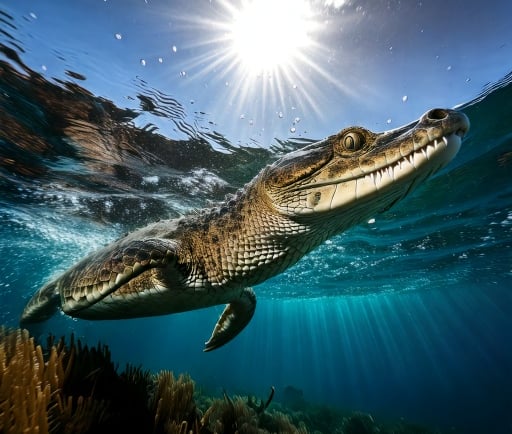The Remarkable Adaptations of the Marine Iguana


Introduction to the Marine Iguana
The marine iguana, scientifically known as Amblyrhynchus cristatus, stands as a unique representative of the lizard family. Found exclusively in the Galápagos Islands, it holds the distinction of being the only lizard in the world capable of living and foraging in marine environments. This extraordinary adaptation allows it to thrive in an ecosystem where few reptiles dare to tread.
Foraging in the Sea: An Evolutionary Marvel
The marine iguana’s diet primarily consists of algae, which it skillfully forages from rocks in the ocean. Their streamlined bodies are perfectly designed for swimming, enabling them to dive beneath the waves to access their food source. While swimming, these iguanas can hold their breath for up to an hour, a remarkable feat that speaks to their evolutionary adaptations. Moreover, they utilize their sharp claws to grip onto rocks, ensuring they do not get swept away by the currents during their underwater foraging sessions.
Unique Adaptations for Survival
Adaptations of the marine iguana extend beyond just foraging techniques. One of the most fascinating aspects is their ability to regulate body temperature in cold ocean waters. When they emerge from the sea, they often bask on the rocks to absorb heat from the sun, which is essential for their metabolism. This behavior highlights a critical balance between their need for warmth and their aquatic lifestyle. Furthermore, marine iguanas showcase a remarkable ability to excrete excess salt from their bodies, a necessity achieved through specialized glandular structures that allow them to adapt to the saline environment of the ocean.
Conclusion: The Importance of Conservation
As a species, the marine iguana is not just a fascinating subject of study due to its adaptations, but also a vital part of the Galápagos marine ecosystem. Their unique lifestyle, which includes swimming, foraging in the sea, and thermoregulation, offers invaluable insights into evolutionary processes. However, like many species, they are susceptible to environmental changes and human impact, including climate change and habitat destruction. Conservation efforts are crucial to ensure the survival of the marine iguana and the delicate balance of the ecosystems in which they thrive. Ensuring their protection guarantees that future generations can learn about and appreciate one of nature's most extraordinary reptiles.
